Table of Content
In today’s digital world, competition is fierce. From small startups to major corporations, businesses are vying for attention online. This is where Search Engine Optimization (SEO) plays a pivotal role. More than just a buzzword, SEO is an essential strategy for driving organic traffic and boosting your visibility online, ultimately enhancing your business’s profitability. Whether you’re a small business owner, digital marketer, or e-commerce entrepreneur, mastering SEO techniques can transform your operations and support sustainable growth. Embracing SEO for business growth is essential and staying ahead. Let’s explore how you can leverage Rankonix’s SEO consultant services to boost your growth by following these strategies.

The Importance of SEO for Business Growth
In the crowded digital marketplace, SEO is crucial for businesses seeking to thrive. It improves your site’s visibility on major search engines like Google, making it easier for potential customers to find you among countless competitors. Best SEO consulting services can significantly increase website traffic, leading to higher conversion rates and increased sales. Ignoring SEO means missing out on a large audience actively searching for what you offer. This explains why SEO is important for business. In the long term, a strong SEO strategy helps build brand trust and loyalty, supporting ongoing business growth.
Understanding the Basics of SEO for Business Growth
To maximize the benefits of search engine optimization (SEO) for business growth, understanding its core components is key. SEO involves three main elements, each critical to your strategy:
1. Keywords
Keywords are the specific terms and phrases potential customers use when searching online for products or services. Identifying and integrating relevant keywords into your content is crucial for attracting the right audience. Tools like Google Keyword Planner and SEMrush can help you discover and analyze effective keywords for your business, enabling you to create content that resonates with your target market.
2. On-Page SEO
On-page SEO involves optimizing individual webpages to rank higher on search engine results pages (SERPs). This includes optimizing meta titles, meta descriptions, header tags, and alt text for images. Ensuring your content is high-quality, relevant, and strategically incorporates target keywords is vital. Additionally, a user-friendly website layout and fast loading times are critical for on-page Search Engine Optimization (SEO) success.
3. Off-Page SEO
Off-page SEO includes activities outside your website that impact search engine rankings. This involves building high-quality backlinks from reputable sites, engaging in social media marketing, and conducting influencer outreach. Off-page SEO enhances your site’s credibility and authority, signaling to search engines that your content is valued and trusted in your industry.
Conducting an SEO Audit for Your Website
To improve your SEO for business growth, understanding your current standing is essential. An SEO audit identifies areas for improvement and is the first step in creating a successful strategy tailored to your business needs.
1. Identify Technical Issues
Use tools like Google Search Console and Screaming Frog to uncover technical site issues such as broken links, duplicate content, and slow pages. Addressing these problems can significantly boost your SEO efforts and enhance user experience, making your site more appealing to search engines and users alike.
2. Analyze On-Page SEO
Review on-page SEO elements like meta titles, descriptions, header tags, and keyword usage, ensuring they are optimized with relevant keywords. High-quality, well-structured content is essential for on-page SEO success. Regularly updating your content keeps it fresh and can improve your rankings, as search engines prefer current and relevant information.
3. Review Backlink Profile
Examine your backlink profile using tools like Ahrefs or Moz to assess your link-building efforts. Identify and disavow low-quality or spammy backlinks to protect your site’s reputation. Focus on building high-quality backlinks from reputable sources to enhance your site’s authority and trustworthiness, leading to increased traffic and higher rankings.
Best Practices for Local SEO
For businesses targeting specific areas, local SEO is essential. It attracts nearby customers searching for your products or services. Improving your local presence can increase foot traffic and boost your visibility in local search results.
1. Optimize Google My Business
To strengthen your local presence, claim and optimize your Google My Business listing. Ensure your business information—address, phone number, and hours—is accurate and updated. Encourage happy customers to leave reviews, as positive feedback enhances local rankings by building credibility and trust.
2. Use Local Keywords
Integrate local keywords into your content to boost visibility in local searches. If you have a bakery in New York, use phrases like “best bakery in New York” or “New York bakery.” This helps search engines understand your location and services, making it easier for customers to find you.
3. Build Local Citations
List your business in reputable local directories and ensure consistent information across platforms. Local citations improve your local SEO service for business and make it easier for customers to find you online. Consistency in your name, address, and phone number (NAP) across various platforms is vital for gaining trust with search engines and users.
The Importance of Content in SEO for Business Growth
Content is crucial in SEO service for business, attracting and retaining visitors. High-quality, engaging content keeps users on your site longer and encourages repeat visits, improving search engine optimization performance. Here are tips for creating content that ranks well and resonates with your audience.
1. Create Quality Content
Focus on crafting valuable content that meets your target audience’s needs and interests. Provide useful information, solve problems, and answer questions. High-quality content is more likely to be shared and linked, boosting your SEO for business growth through increased visibility and authority.
2. Optimize with Keywords
Naturally incorporate relevant keywords into your content. Avoid keyword stuffing, as it can harm rankings. Use keywords strategically in headings, subheadings, and throughout the body to improve relevance and visibility in search results.
3. Update Regularly
Regularly updating your content keeps it fresh and relevant. Search engines prefer websites that consistently offer new, valuable information. Refreshing old content with new insights or multimedia elements can enhance performance, aligning it with trends and user interests.
Social Media in Your SEO Strategy

In modern SEO, social media plays a vital role, offering opportunities to drive traffic, enhance brand identity, and improve rankings. By leveraging social platforms, you can extend your content’s reach and engage more users.
Share Content on Social Media
Consistently share your blog posts and articles on platforms like Facebook, Twitter, LinkedIn, and Instagram. Encourage followers to share your content, expanding its reach and visibility. Each share increases the likelihood of your content gaining traction and engagement.
Engage with Your Audience
Engage with your audience on social media by responding to comments, answering questions, and joining discussions. A strong social media presence enhances your brand’s credibility and authority, fostering community and trust with followers.
Use Social Media for Link Building
Share your content with influencers and industry leaders in your niche. If they find it valuable, they might link to it, offering high-quality backlinks that boost search engine optimization. Building relationships with these figures can lead to collaborations and co-promotion, further expanding your reach.
The Importance of Mobile Optimization for SEO

In today’s world, with the surge in smartphone usage, mobile optimization is crucial for SEO success. Having a mobile-friendly website ensures a smooth user experience and significantly impacts search engine rankings. Search engines now prioritize mobile-friendly sites, making mobile optimization essential for increasing your online visibility.
1. Responsive Design
Adopt a responsive design for your website that adapts to all screen sizes. A responsive design offers a consistent user experience, reduces bounce rates, and boosts SEO performance. With responsive web design, you can improve user satisfaction and enhance your search engine rankings.
2. Enhance Page Load Speed
Mobile users demand fast-loading websites, so page speed is vital for mobile optimization. Optimize images, use a content delivery network (CDN), and reduce unnecessary scripts to improve page speed. Faster-loading pages lead to better user experiences and can positively influence search engine results.
3. Simplify Navigation
Make navigation easy for mobile users by using clear menus, large buttons, and simple forms. A user-friendly mobile site reduces bounce rates and boosts SEO by encouraging users to explore more pages and engage with your content.
Measuring and Tracking Your SEO Efforts for Business Growth
Monitoring Search Engine Optimization performance is crucial for identifying successful strategies and areas that need improvement. By analyzing your SEO activities, you can make informed decisions to boost your online presence. Use the following tools and metrics to effectively track your SEO progress.
1. Google Analytics
Google Analytics offers valuable insights into website traffic, user behavior, and conversion rates. Track organic traffic, identify top-performing pages, and assess user engagement. By understanding which pages attract visitors and convert them, you can refine content and SEO digital marketing strategies for better SEO results.
2. Google Search Console
Google Search Console is essential for monitoring your site’s performance in search results. It provides data on search impressions, clicks, and ranking positions. Use it to identify and fix issues like indexing or crawling errors, ensuring your site is fully optimized for search engines.
3. Search Engine Optimization Tools
Leverage advanced SEO tools like Ahrefs, Moz, and SEMrush for comprehensive analysis and tracking. These platforms help monitor keyword rankings, analyze backlinks, and assess overall SEO health. Using these resources, gain competitive insights and fine-tune your strategies for better search visibility.

Take Action Today
Boost your business with top SEO strategies! Discover effective tactics in this post to enhance your online presence. For expert SEO guidance, connect with our Rankonix team. Visit us at https://rankonix.com/ or email info@rankonix.com for top-rated local SEO service for business. Start attracting more customers today with proven Search Engine Optimization solutions!
Conclusion
SEO is a powerful tool to boost your business by attracting more online customers. By mastering SEO basics, conducting audits regularly, implementing local SEO strategies, creating quality content, utilizing social media, and optimizing for mobile, you can enhance your online presence and drive growth.
At Rankonix, we provide affordable SEO service for business along with custom Shopify store development, web design, graphic design, social media marketing, and content writing. Our dedicated SEO consultant services are here to help you achieve your business goals. Ready to enhance your SEO strategy? Contact us today to learn more about our SEO digital marketing services and see how we can help grow your business.
FAQs
Q. What is SEO?
SEO, or Search Engine Optimization, is the practice of boosting a website’s visibility on search engines like Google. By using proven SEO techniques, you can help your site rank higher on search engine results pages (SERPs). The main goals of SEO are to increase organic traffic, improve user experience, and drive more conversions.
Q. How long does it take to see results of SEO for business growth?
SEO is a long-term digital marketing strategy. It usually takes several months to see significant results of SEO for business growth. Factors like your website’s current status, competition level, and the SEO strategies used all affect the timeline. Consistent Search Engine Optimization (SEO) efforts lead to sustainable, long-lasting results.
Q. Why is mobile optimization crucial for Search Engine Optimization (SEO)?
With the increasing use of mobile devices, search engines prioritize mobile-friendly websites. Mobile optimization ensures your site is easily accessible and user-friendly on all devices, which boosts user satisfaction and your search engine rankings.
Q. How often should I update website content for SEO Business Growth?
Regularly updating your website content is crucial for maintaining relevance and competitiveness. Aim to review and refresh your core pages every few months, especially when there are industry changes or new information. This strategy helps maintain or improve your SEO rankings over time.
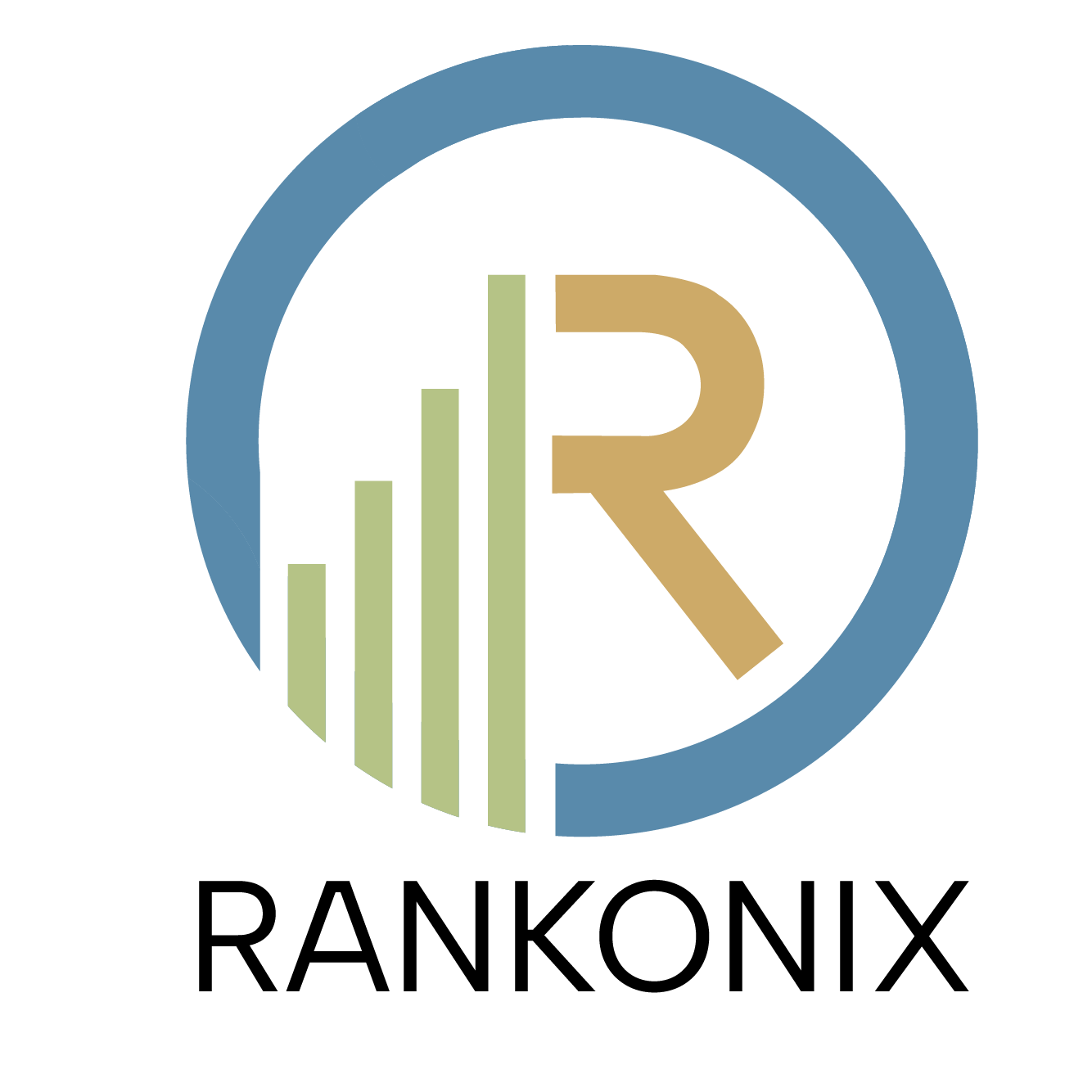
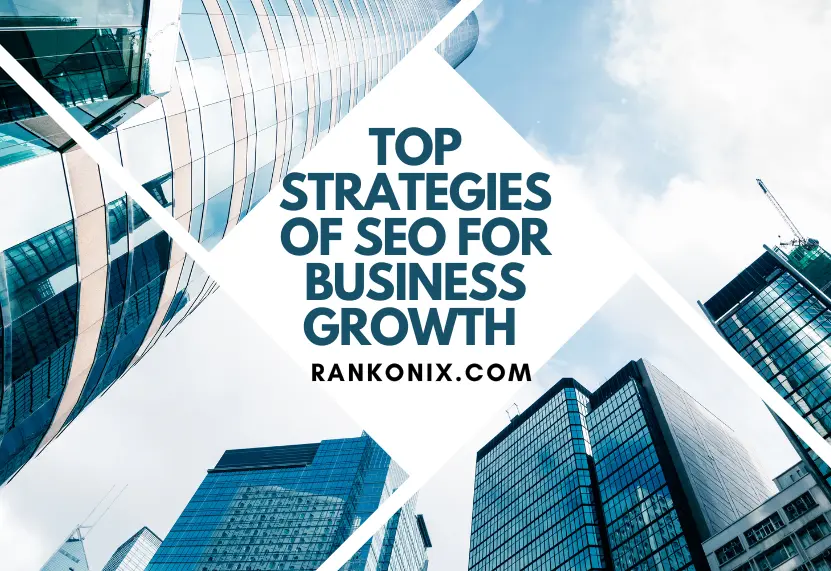
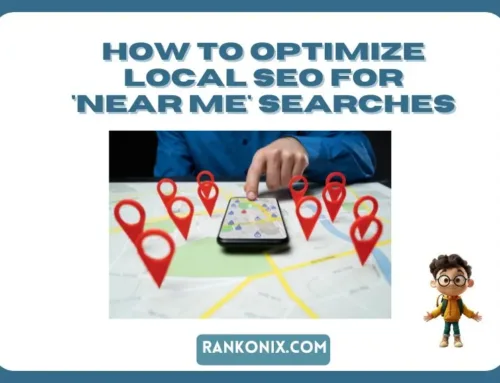
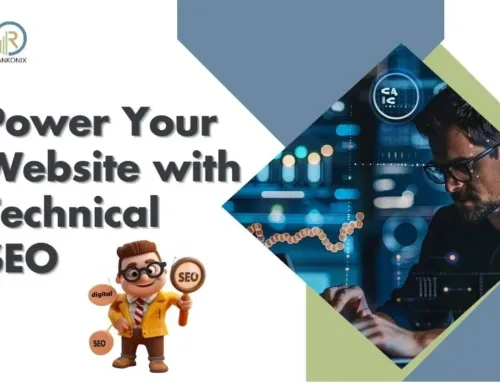
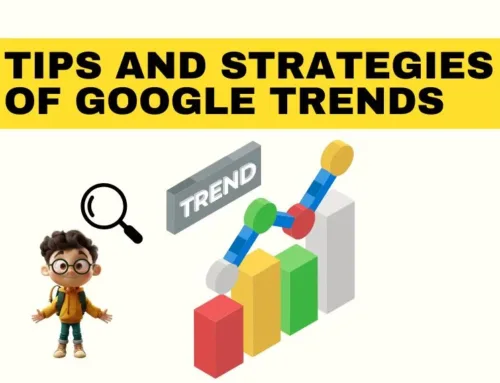
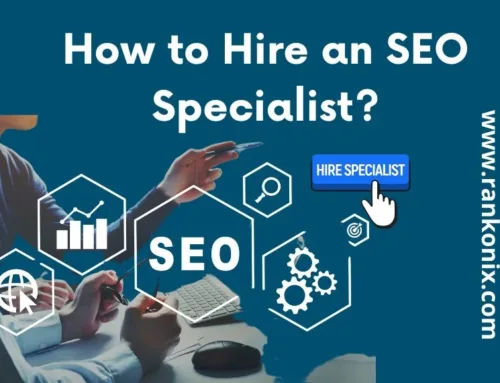
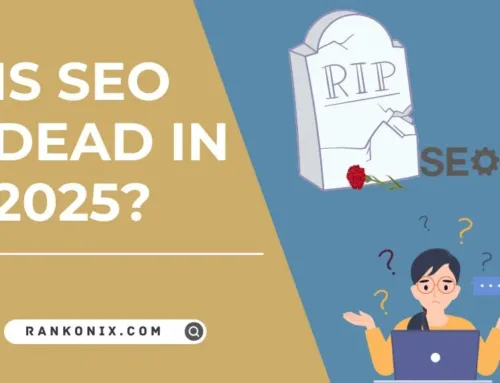

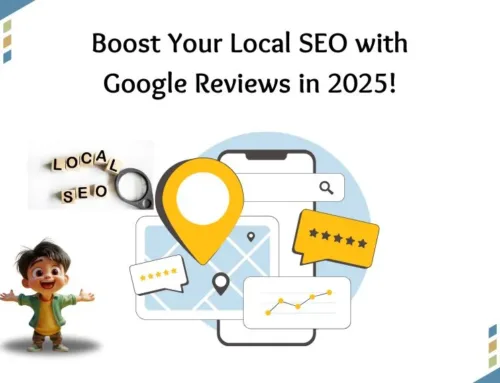
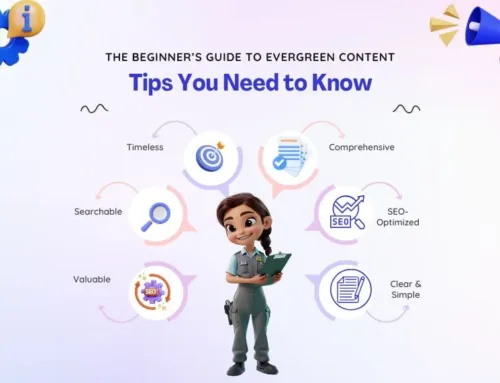
[…] today’s digital world, search engine optimization (SEO) is crucial for increasing a business’s online visibility. Effective SEO can improve a […]
[…] Here are some super simple and detailed breakdown of tips to increase crawl budget and help Google focus on your best pages and boost your SEO with top strategies. […]
[…] how you can easily optimize for keyword search intent without overcomplicating things. Here are top strategies which are practical, beginner-friendly, and super […]
[…] Website Visibility: By targeting strategic keywords, businesses help search engines like Google comprehend their content’s context and relevance more […]
[…] dive into the evolution of SEO, dispel common myths about its decline, and share forward-thinking strategies for success. With insights from industry leaders at Rankonix, you’ll gain the tools to stay ahead of the […]